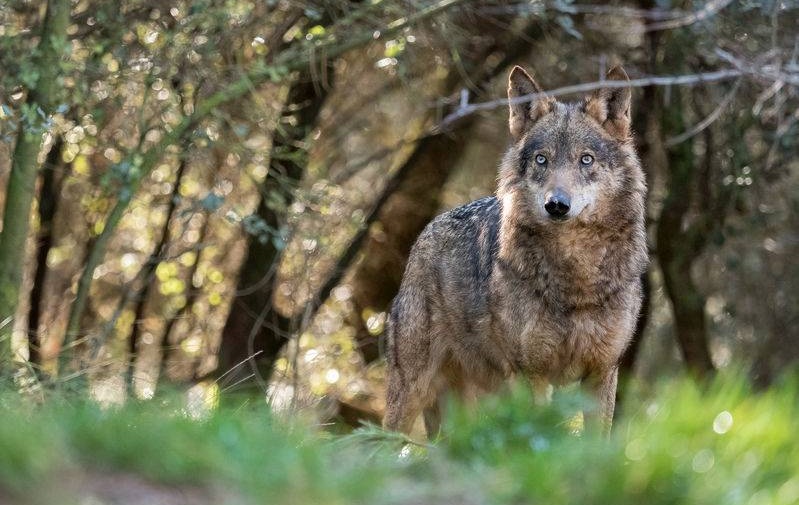
Reintroducing wolves to the Scottish Highlands could help tackle climate change and help the UK reach net-zero, according to a new University of Leeds study.
The move could lead to an expansion of native woodland which could take in and store one million tonnes of CO2 annually, researchers say
However, they admit that the debate around the any reintroduction will not be without controversy, particularly among livestock farmers and deer stalkers.
Researchers modelled the potential impact that wolves could have in four areas, where the eating of tree saplings by growing red deer populations is suppressing natural regeneration of trees and woodland.
They used a predator–prey model to estimate that a total population of around 167 wolves would be enough to reduce red deer populations to a level that would allow trees to regenerate naturally.
Control of red deer by wolves could lead to an expansion of native woodland that would take up - or sequester - one million tonnes of CO2 each year, the study says.
This is equivalent to approximately 5% of the carbon removal target for UK woodlands that has been suggested by the UK’s Climate Change Committee as being necessary to reach net-zero by 2050.
The researchers estimate that each wolf would lead to an annual carbon uptake capability of 6080 tonnes of CO2, making each of the predators "worth" £154,000, using accepted current valuations of carbon.
Lead author Professor Dominick Spracklen said: “There is an increasing acknowledgement that the climate and biodiversity crises cannot be managed in isolation.
“We need to look at the potential role of natural processes such as the reintroduction of species to recover our degraded ecosystems and these in turn can deliver co-benefits for climate and nature recovery.”
Wolves were eradicated from Scotland around 250 years ago, leaving red deer with no natural predators and allowing their populations to grow across the country.
Despite ongoing management, red deer numbers in Scotland have significantly increased over the last century, with the latest estimates thought to be as high as 400,000.
Lee Schofield, a co-author of the study as well as being a farmer said: “Our aim is to provide new information to inform ongoing and future discussions about the possibility of wolf reintroductions.
“We recognise that substantial and wide-ranging stakeholder and public engagement would clearly be essential before any wolf reintroduction could be considered.
"Human-wildlife conflicts involving carnivores are common and must be addressed through public policies that account for people’s attitudes for a reintroduction to be successful.”
